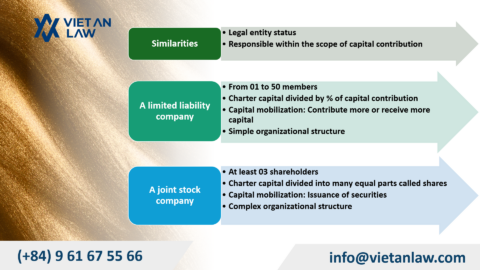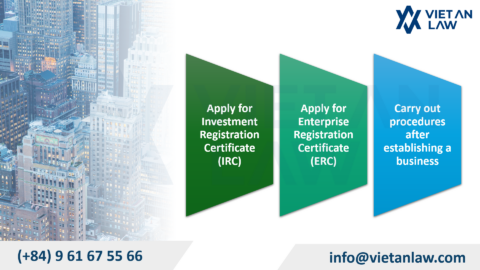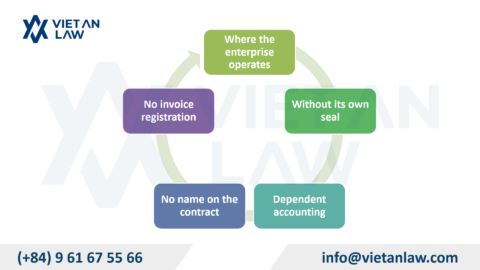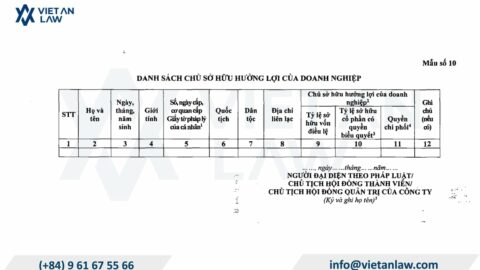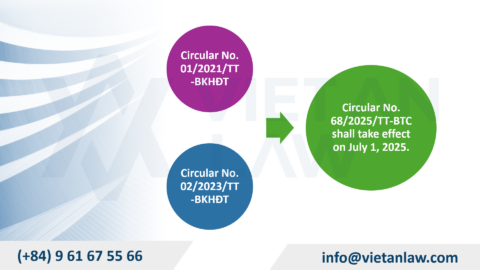Vietnam, with its abundant labor force, strategic locations, and attractive incentives, has been continuously attracting foreign investors in the manufacturing sector. Foreign investors wishing to set up a 100% foreign-owned manufacturing company in Vietnam need to understand the legal requirements and conditions to be met in order to establish and operate in accordance with Vietnamese law. Below, Viet An Law Firm will provide a guide to set up an FDI manufacturing company in Vietnam.
Table of contents
According to the WTO’s Commitments, for manufacturing-related industries, foreign investors should pay attention to certain market access conditions, as follows:
In addition to the conditions for establishing a business according to the 2020 Enterprise Law, such as the founding entity, company name, address, office, etc., when setting up an FDI manufacturing company in Vietnam, the following conditions under the Investment Law 2020 must be taken into account:
According to the Investment Law 2020, industries and business sectors that are restricted or conditionally open to foreign investment in manufacturing include:
Restricted business lines, such as:
Conditionally open business lines, such as:
For sectors with conditional market access, foreign investors must ensure they meet these conditions before proceeding with legal procedures to set up a manufacturing company in Vietnam.
As manufacturing activities have a significant impact on the environment, it is important to comply with fire safety, environmental commitments, and public security regulations. Therefore, the project location must be within an area designated for manufacturing, such as industrial zones, high-tech zones, or export processing zones. Environmental protection regulations must be adhered to, and in many cases, an Environmental Impact Assessment (EIA) and waste discharge permits may be required.
Before leasing the project location, foreign investors should ensure that the property is suitable for the type of manufacturing they plan to undertake and verify that the lease documents comply with legal regulations for production.
Foreign investors need to verify whether the products their company plans to manufacture are permitted in Vietnam. Some products may not be licensed for production under the ASEAN Comprehensive Investment Agreement, including:
Vietnamese law does not specify a minimum capital requirement for establishing a 100% FDI manufacturing company. However, investors must allocate sufficient capital to meet the demands of their business project, including the production scope, scale, and nature of the operations.
The Investment Registration Certificate (IRC) issued to the investor clearly outlines the production objectives, production scale, and timeline for project implementation. Investors must strictly adhere to the registered contents of the IRC. In case of any changes, they must contact the licensing authority to amend the IRC accordingly.
Upon obtaining the IRC and the Enterprise Registration Certificate (ERC), investors must secure additional licenses for certain regulated sectors before commencing production. Examples include: Pharmaceutical manufacturing; Cosmetics production; Medical equipment production; Manufacturing, assembling, importing, and providing warranty services for automobiles; Alcohol production; Food production, etc.
After obtaining the IRC, FDI companies must periodically report the implementation status of their investment projects. Reports are submitted monthly, quarterly, biannually, and annually. Currently, these reports are filed electronically through the National Foreign Investment Information System at https://fdi.gov.vn.
This is Viet An Law Firm’s guide to set up an FDI manufacturing company in Vietnam. Should you have any questions, please contact Viet An Law Firm for expert consultation and support!
